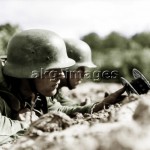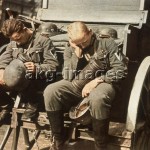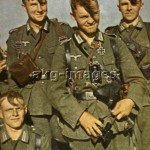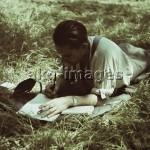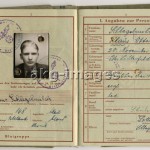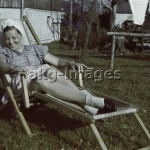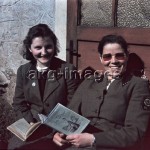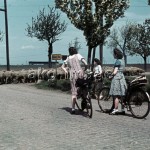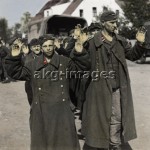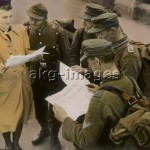Generation War – Our Mothers, Our Fathers – a personal view
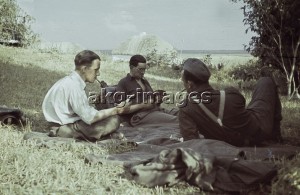
As a German living abroad for half my life, I am used to even my closest friends betraying anti-German feelings in jokes about football, German efficiency or World War II. When I first moved to London it was very difficult for me to understand why everyone seemed so obsessed with the war but somehow I got used to it. I still got upset, though, when even the most liberal papers continued to describe anything German (footballers, holiday campers etc.) with war terminology as if we hadn’t moved on at all. My parents were born at the tail end of the war; my dad in 1940 and my mum in 1944 and so neither has any real memories of wartime. The “generation war” would have been their mothers and fathers or, in my dad’s case three brothers who were all much older than him.
I watched “Generation War” together with my mum when it came out in Germany and having read much of the criticism – and praise – which was levelled at the trilogy then, I am fascinated to see what reviewers abroad make of it. My sister still lives in the UK and so she will also be a bit of a barometer for me as well. My mum and I spent three consecutive nights watching the three parts and it was quite a draining experience. What was much more important, however, was the fact that my mum suddenly started opening up about her youth and how there was this wall of silence from anyone who had been in young in the war, i.e. her mother, my grandmother, and any of the other relatives who had been young adults then. Nobody talked about the war and even her history classes at school stopped at the time of Bismarck, even before World War I! She told me that this carried on until the late 60s when she had gone to business school. By the time I learned history at school, things had changed and World War II but even more so the Holocaust were part of the school curriculum not just in history but also social studies and German literature.
My maternal grandfather died years before I was even born at the age of 46. According to my mum’s recollections, he died as a consequence of illnesses (and possibly injuries) sustained on the Eastern Front – she doesn’t know any more than that. The only person I could ever ask about her time under the Nazi regime was my maternal grandmother who was in her early 20s when the war broke out. Before I had learned anything about the war at school she used to tell me stories of going on summer camps when she was little but she never mentioned that this had been in the Hitler Youth movement which wouldn’t have meant anything to me at that age anyway. As I got older and started asking questions about the atrocities that I had learned about at school, the stories stopped and the wall of silence was up again. It is only through talking to my mum as a result of watching “Generation War” that I realised how hard it must have been for her generation to have parents they never really got to know. The distance between the generations must have been quite literally unbridgeable.
I think much of the criticism levelled at the programme misses the point – they may be unlikely friendships and we are certainly asked to have a certain amount of sympathy with the protagonists. Personally, I don’t think the programme is asking for forgiveness, a charge that I read about in a British newspaper today, either. Maybe it is an attempt to create some understanding for a very young generation who got corrupted and made, often immoral and impossible to understand, compromises. In my opinion, the fact that it opened up a dialogue between the generations is much more important, even if, as in my case (and for my mum) it came somewhat too late – the “generation war” is dead and we can’t ask any more questions.

